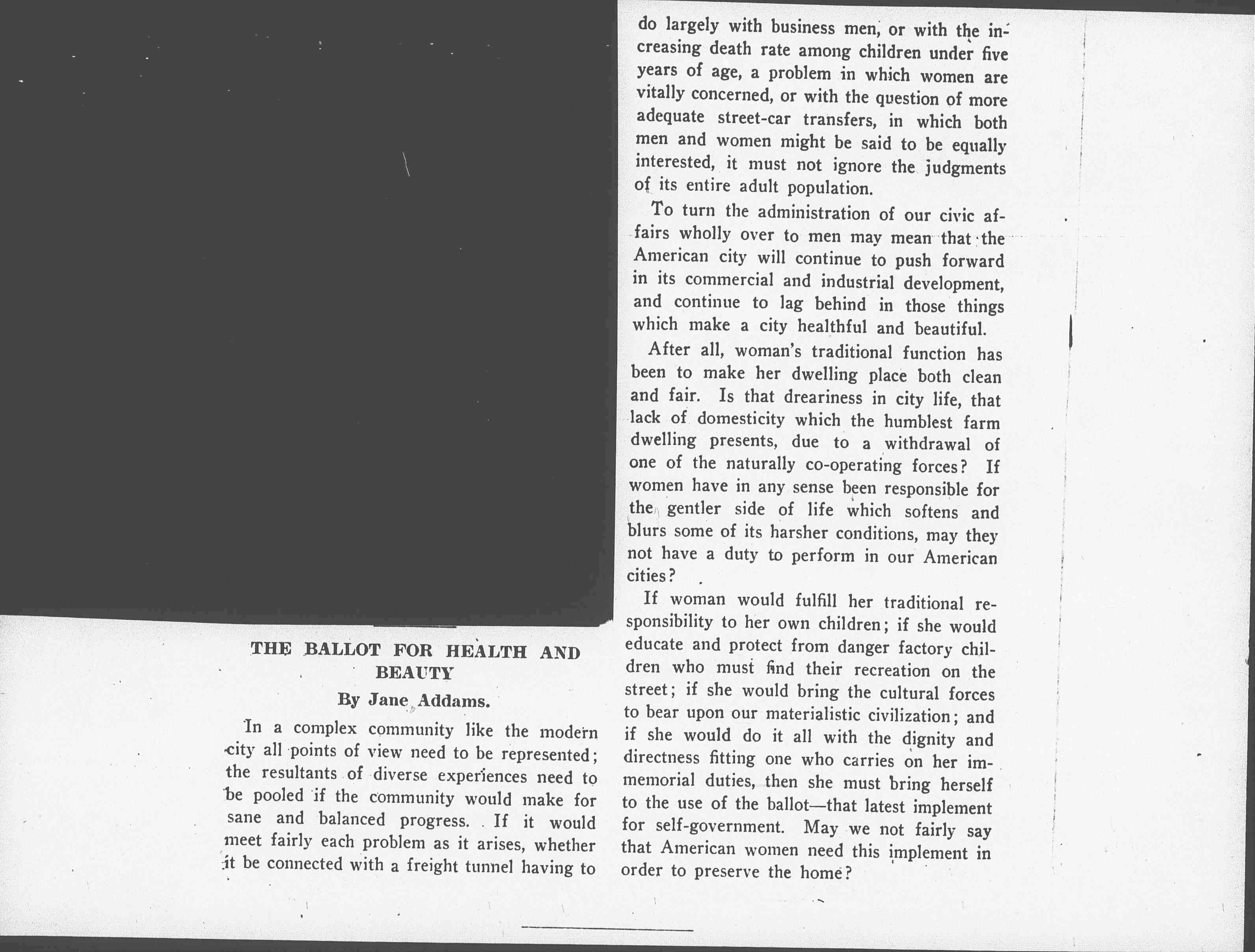In a complex community like the modern city all points of view need to be represented; the resultants of diverse experiences need to be pooled if the community would make for sane and balanced progress. If it would meet fairly each problem as it arises, whether it be connected with a freight tunnel having to do largely with business men, or with the increasing death rate among children under five years of age, a problem in which women are vitally concerned, or with the question of more adequate street-car transfers, in which both men and women might be said to be equally interested, it must not ignore the judgements of its entire adult population.
To turn the administration of our civic affairs wholly over to men may mean that the American city will continue to push forward in its commercial and industrial development, and continue to lag behind in those things which make a city healthful and beautiful.
After all, woman's traditional function has been to make her dwelling place both clean and fair. Is that dreariness in city life, that lack of domesticity which the humblest farm dwelling presents, due to a withdrawal of one of the naturally [cooperating] forces? If women have in any sense been responsible for the gentler side of life which softens and blurs some of its harsher conditions, may they not have a duty to perform in our American cities?
If woman would fulfill her traditional responsibility to her own children; if she would educate and protect from danger factory children who must find their recreation on the street; if she would bring the cultural forces to bear upon our materialistic civilization; and if she would do it all with the dignity and directness fitting one who carries on her immemorial duties, then she must bring herself to the use of the ballot -- that latest implement for self-government. May we not fairly say that American women need this implement in order to preserve the home?





Comments